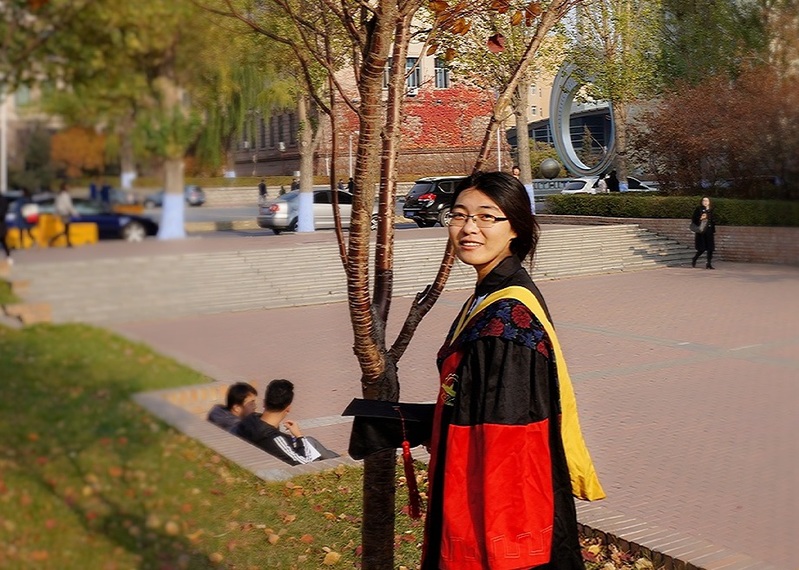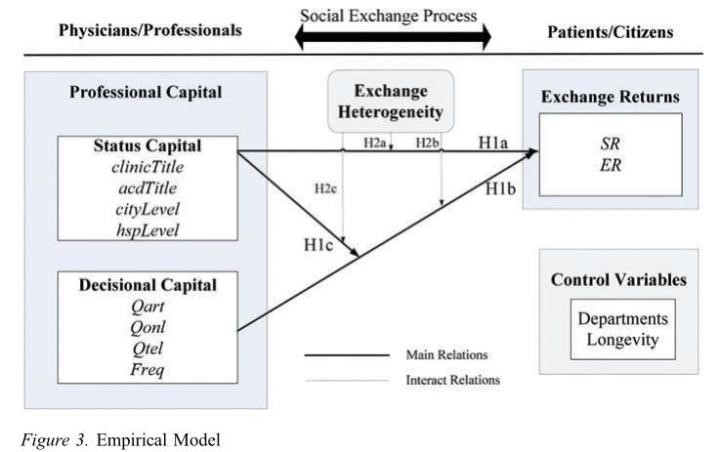2017年9月,电子健康研究所在“在线医疗”领域又取得突破性进展,我所郭珊珊同学在Doug Vogel教授、郭熙铜教授的指导下,联合香港城大的方钰麟老师,在管理信息系统顶级期刊之一的JMIS上发表了题为“How Doctors Gain Social and Economic Returns in Online Health-Care Communities: A Professional Capital Perspective”的文章。

该文将研究的视角锁定在了参与在线医疗社区的优势方,将医生拥有的专业资本(Professional Capital)作为一种可交换的再生性资源,以分析社会性回报(Social Returns)和经济性回报(Economic Returns,如:咨询费、虚拟礼物、公开感谢信、投票或点赞)对医生参与在线医疗社区的激励,探讨医生为什么会参与在线医疗社区;在研究中主要分析了两个大方面的问题,其一是作为交换资源的专业性资本对医生的社会回报和经济回报的影响,其二是在专业资本交换过程中产生的异质性。并在2013年10月使用网络爬虫在中国最大的在线医疗社区好大夫在线(www.haodf.com)爬取到3,233家正规医院以及303,367名个人医生的公开数据,并对数据进行了除噪声、删减不符项等处理。
为检验交换的异质性,本文将医生在社会交换中的经济与社会回报获取的不同分为以下四组:高社会高经济回报、高社会低经济回报、低社会低经济回报、低社会高经济回报,并展示于二维象限图中。在具体的模型估计时,本文主要采用了最小二乘回归,并具体进行了多组、分组、因变量分组等回归进行各主效应与交互效应的检验。最后结果表明,除地位资本与决策资本的交互项(H1C)部分成立以外,其余假设均显著成立。(如下图)

研究表明,专业性资本对在线医疗社区中的医生的社会回报和经济回报有显著性的影响,同时,低地位资本的医生,自愿交换与医生的地位资本对经济回报的产生,存在着互补关系,也就是说对于一个低地位资本的医生,他可以通过自愿主动的交换来获得更多经济回报。最后文章还指出,在线医疗社区不是一个经济交换过程,而是社会交换过程。
文章英文摘要:
An online health-care community (OHC) is a novel channel through which doctors share medical or health-care knowledge with patients. While the sustainable development of an OHC relies on doctors’ participation, we have limited information on how doctors can gain benefits from OHCs. In attempting to close this knowledge gap, we examine the determinants of social and economic returns of doctors at OHCs by extending the social exchange theory into the professional domain. The notion of professional capital, as a set of renewable resources for social professionals developed by good education within a territory of social practice, is introduced to understand the unique resources available to doctors for social exchange. Specifically, we examine the effects of status capital and decisional capital (two dimensions of professional capital) on doctors’ social and economic returns. Moreover, we explore how such effects differ across different doctor groups. The results show that, in addition to the widespread pursuit of celebrity doctors (who can be recognized by their high status capital) offline, the doctor’s decisional capital is also an important professional component in maintaining exchange returns at OHCs. This study provides empirical evidence of the relationship between professional capital and the exchange returns, and extends prior research on OHCs through a professional capital perspective with implications for theory.